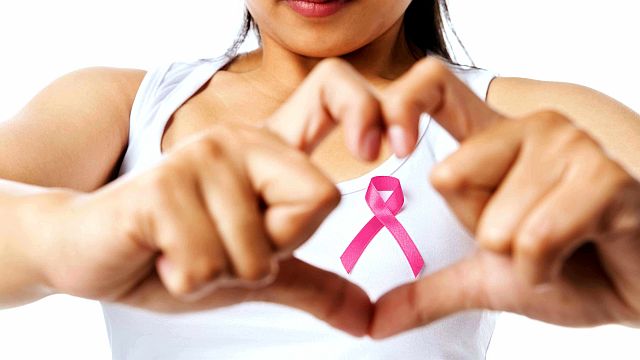
TODAY we cap off Breast Cancer Awareness Month, an annual campaign to increase awareness of the disease. The point is to aspire to be healthy whatever our age and life stage is. While no one knows the exact cause of breast cancer, our choices might affect our risk of developing the disease.
Here are smart reproductive health guidelines from Dr. Faith Suluen, OB-Gyn:
Track your menstrual cycle.Always record the first up to the last day of your period, bleeding pattern, number of pads you used throughout your menstruation, signs and symptoms such as cramps, dysmenorrhea or any unusual experience worth mentioning to your OB. This habit not only will keep you track of your ovulation history, it will also arm you with period essentials such as medicines, food you should stock up on, plus effectively plan out your activities for the next three to five days. “Normal menstrual cycle interval is 21 to 35 days, shorter than that can sharply cause anemia while beyond that period could make it harder to conceive at any age,” says Dr. Faith.
Having your PMS or period during your busiest time of the week is worse enough, but getting caught without your Jeunesse Anion Sanitary Napkin is the worst. Keeping yourself abreast with your cycle will make you ready when Aunt Flow shows up.
Eat well and don’t be a couch potato. Although there’s no direct link that says diet is the culprit for breast cancer, staying with normal weight range, having regular physical activity, consumption of fruits and vegetables, as well as low saturated fat intake will promote general well-being and decrease the risk. Since most cancers are inflammatory in nature, include omega-9 rich foods that can be found in olive oil, nuts and fruits like avocado. The nutrients and phytochemicals which are abundant in fresh produce also help combat disease and even play a role in prevention.
Elevate your hygiene routine. “To keep your intimate area clean and dry, practice front to back wiping whenever you go on a trip to the toilet. Let go of tight-fitting pants, underwear made of silk and ruffles, as these may trap warmth and moisture that may cause irritation and encourage bacterial growth. Change your sanitary pad and panty liner every 4 to 6 hours to keep yourself fresh and odor-free,”
reminds Dr. Faith.
Have a self–breast examination but never self-medicate. Don’t scrimp nor make your breast ultrasound (if you’re under 40) or mammogram (aged 40 years old and above) checkup least priority. These are ideally conducted annually. As for the self–breast examination, which should bereligiously practiced seven days after your monthly period, here’s a simple technique while in the shower: Move around your fingers to the entire breast in a circular pattern moving from the outside to the center and check the entire breast and armpit area. Be wary of any lump, thickening and hardened knot.
Schedule regular gynecological exam. “Once there’s a sexual contact by age 21, you’re automatically recommended to have an annual pap smear checkup. However, getting yourself vaccinated while not yet sexually active is highly encouraged as it can decrease your risk of developing cervical cancer,” advises Dr. Faith. And here’s the thing: Even if you don’t have sexual experience but cervical cancer runs in the family, you can be at risk.
* Wellgold International Inc. distributes Jeunesse Anion Sanitary Napkin and Liners and currently available at Watsons, selected Mercury Drug and South Star Drug outlets, SM department store’s health and beauty section, Robinson’s Supermarket, Shopwise,
Rustan’s Supermarket, selected Metro Gaisano outlets, etc. You can also purchase online with free delivery via www.lazada.com.ph. For more health tips, visit www.jeunesseanion.comand follow Facebook, Twitter, and Instagram: Jeunesse Anion.



